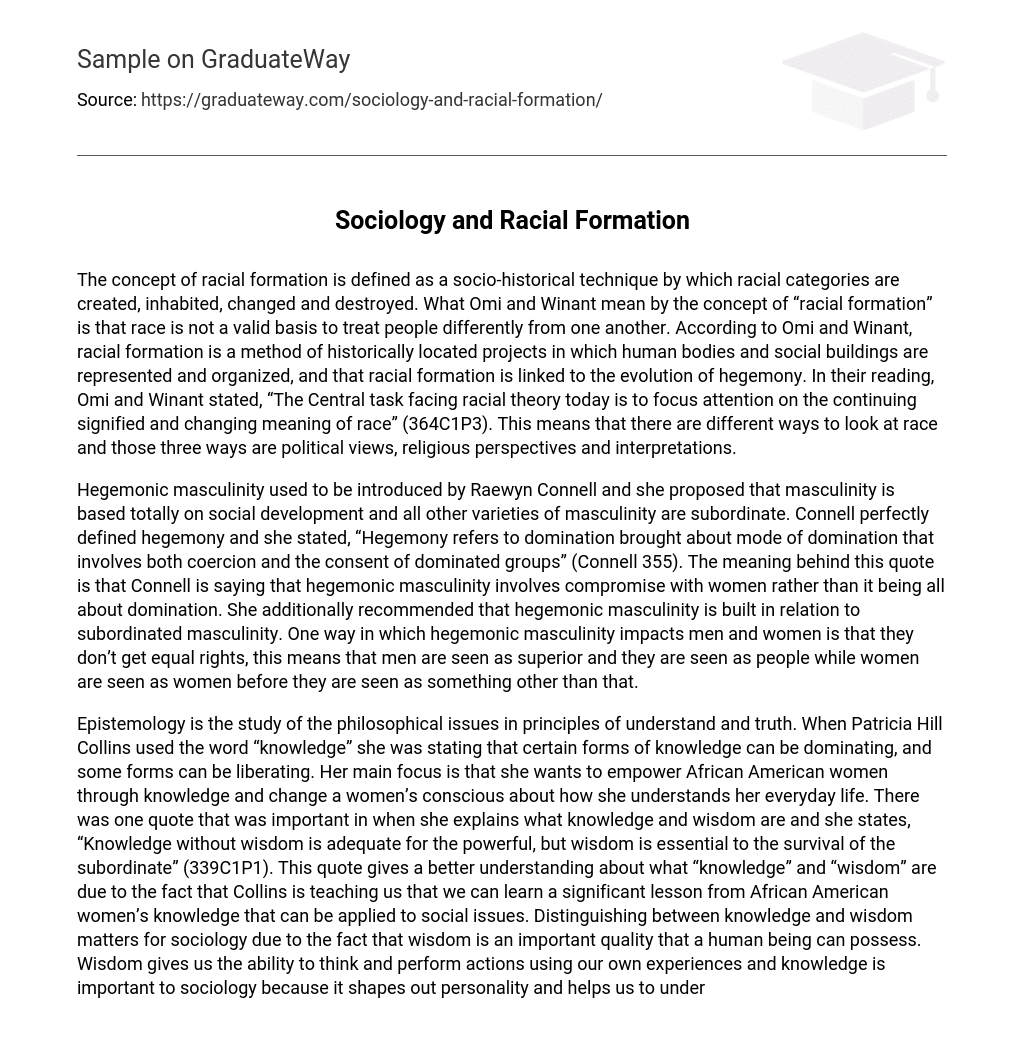The concept of racial formation is defined as a socio-historical technique by which racial categories are created, inhabited, changed and destroyed. What Omi and Winant mean by the concept of “racial formation” is that race is not a valid basis to treat people differently from one another. According to Omi and Winant, racial formation is a method of historically located projects in which human bodies and social buildings are represented and organized, and that racial formation is linked to the evolution of hegemony. In their reading, Omi and Winant stated, “The Central task facing racial theory today is to focus attention on the continuing signified and changing meaning of race” (364C1P3). This means that there are different ways to look at race and those three ways are political views, religious perspectives and interpretations.
Hegemonic masculinity used to be introduced by Raewyn Connell and she proposed that masculinity is based totally on social development and all other varieties of masculinity are subordinate. Connell perfectly defined hegemony and she stated, “Hegemony refers to domination brought about mode of domination that involves both coercion and the consent of dominated groups” (Connell 355). The meaning behind this quote is that Connell is saying that hegemonic masculinity involves compromise with women rather than it being all about domination. She additionally recommended that hegemonic masculinity is built in relation to subordinated masculinity. One way in which hegemonic masculinity impacts men and women is that they don’t get equal rights, this means that men are seen as superior and they are seen as people while women are seen as women before they are seen as something other than that.
Epistemology is the study of the philosophical issues in principles of understand and truth. When Patricia Hill Collins used the word “knowledge” she was stating that certain forms of knowledge can be dominating, and some forms can be liberating. Her main focus is that she wants to empower African American women through knowledge and change a women’s conscious about how she understands her everyday life. There was one quote that was important in when she explains what knowledge and wisdom are and she states, “Knowledge without wisdom is adequate for the powerful, but wisdom is essential to the survival of the subordinate” (339C1P1). This quote gives a better understanding about what “knowledge” and “wisdom” are due to the fact that Collins is teaching us that we can learn a significant lesson from African American women’s knowledge that can be applied to social issues. Distinguishing between knowledge and wisdom matters for sociology due to the fact that wisdom is an important quality that a human being can possess. Wisdom gives us the ability to think and perform actions using our own experiences and knowledge is important to sociology because it shapes out personality and helps us to understand ourselves, our weaknesses and strengths, and how it shapes out relationships with others.





